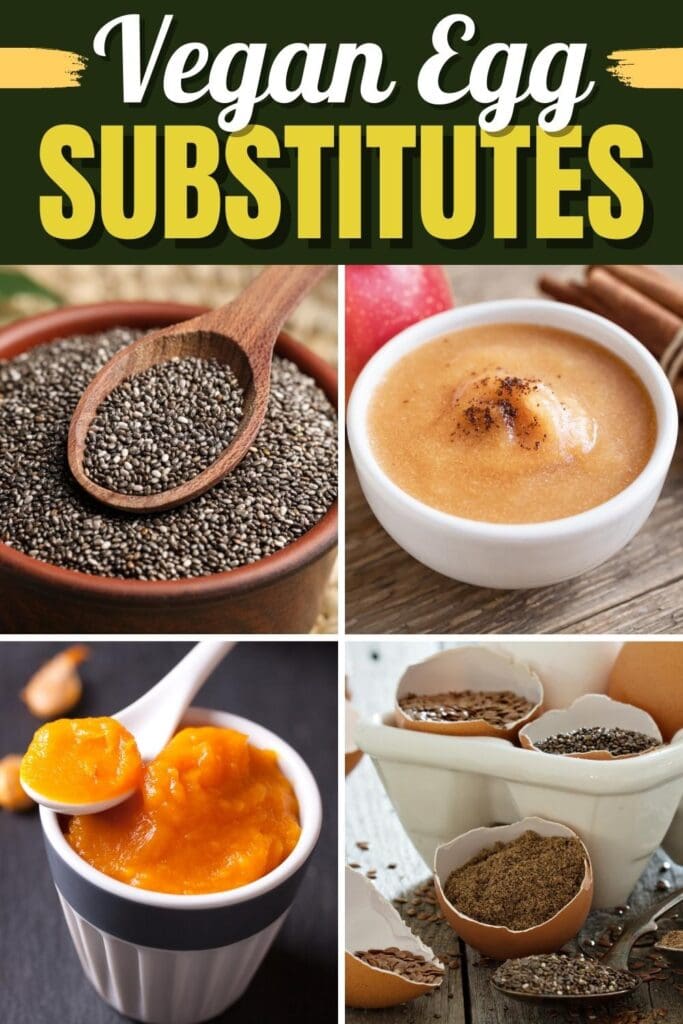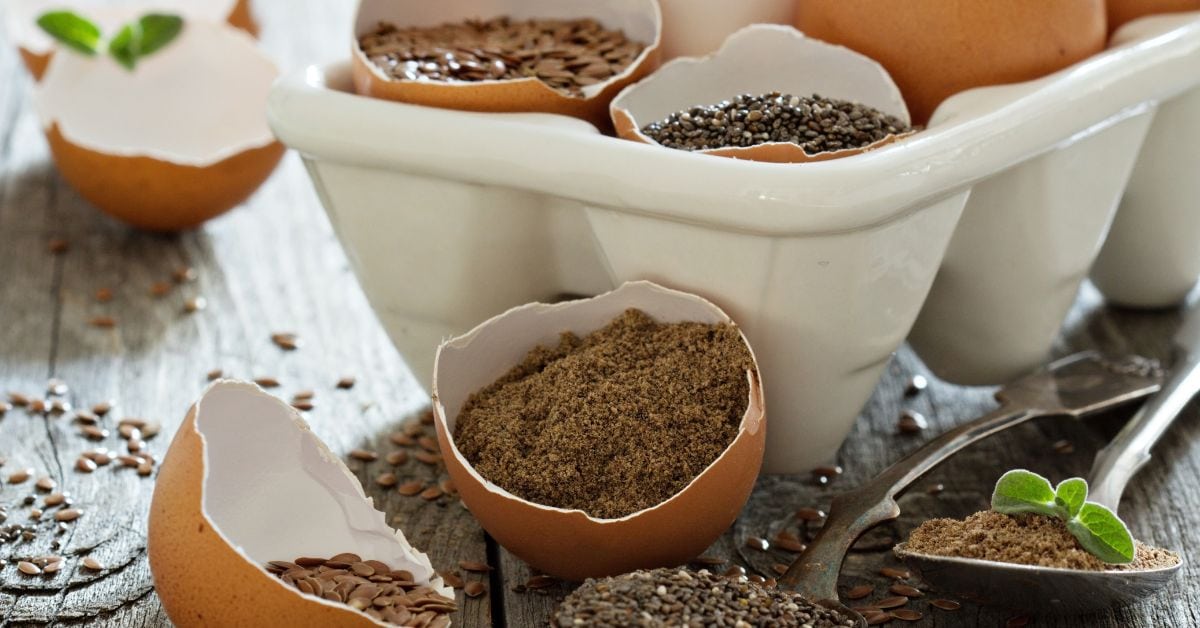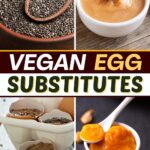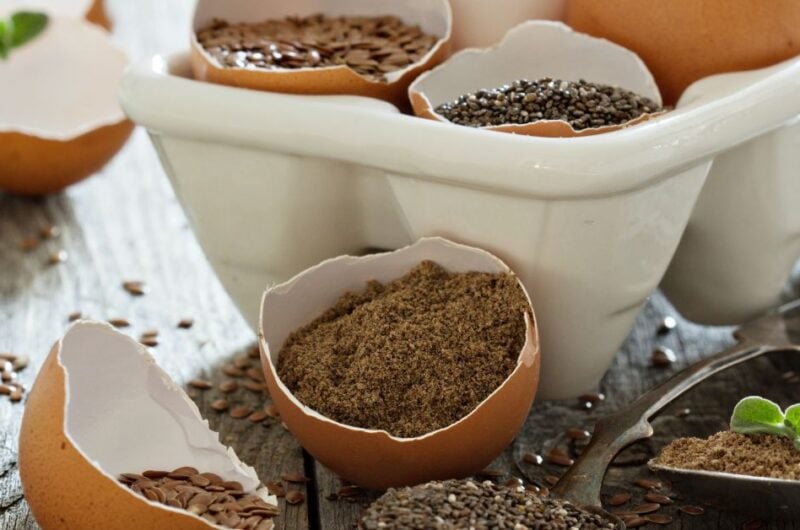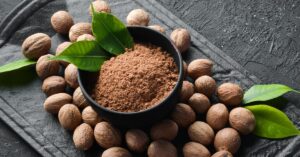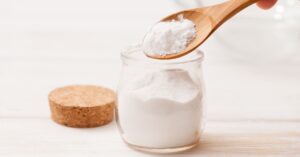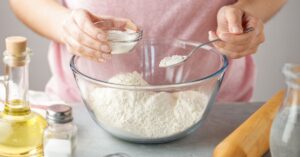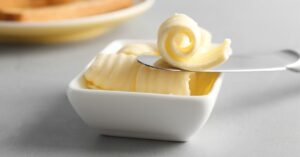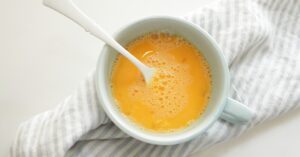Often, the hardest part of plant-based cooking is finding the perfect vegan egg substitutes.
I know you’ve tried chia seeds and applesauce, and probably ground flaxseed. But what about tofu?
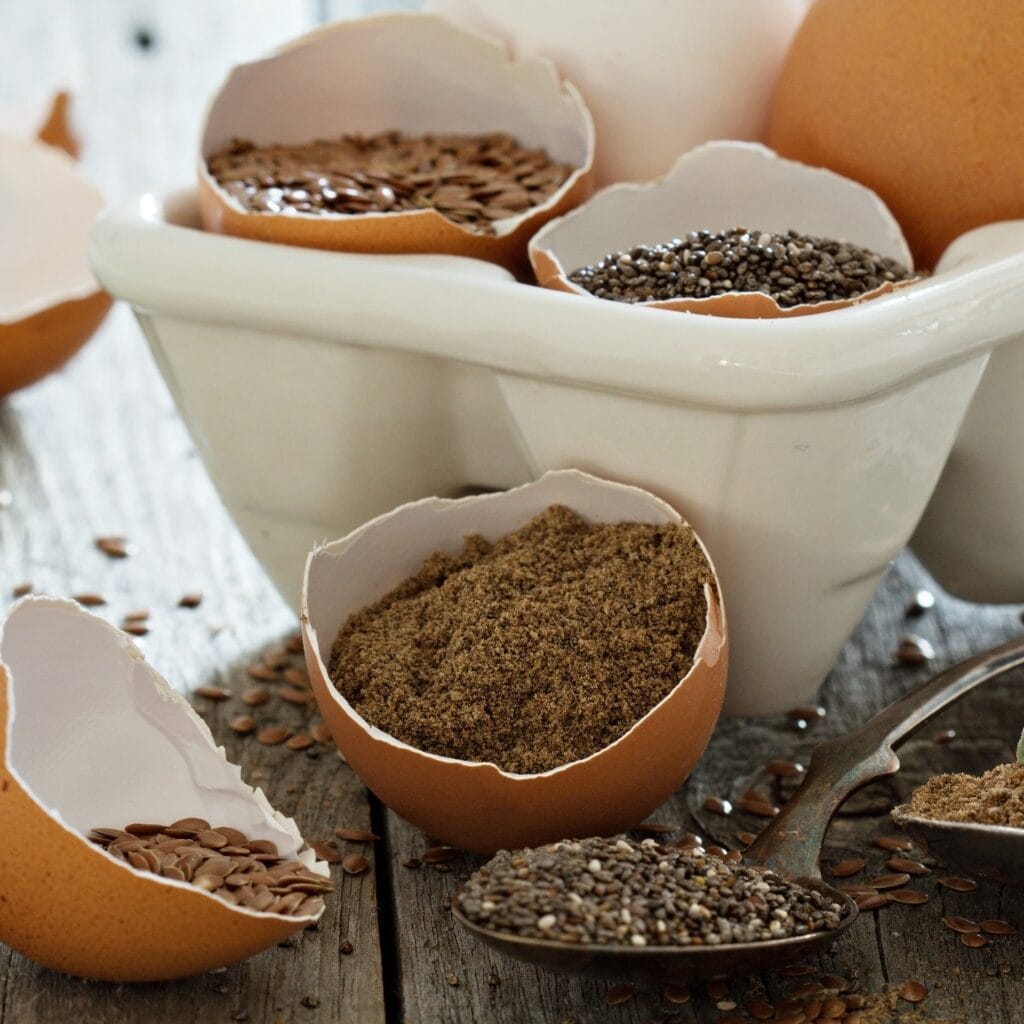
And believe it or not, you can even use bananas, vegan yogurt, and pumpkin instead of eggs in certain recipes.
It’s really a matter of finding the best substitute for the recipe you’re making.
For example, you wouldn’t want to use mashed bananas in a savory dish. And chia seeds wouldn’t be super pleasant in a creamy recipe.
But before we get into the swaps, let’s dive into the best uses for eggs.
The Role of Eggs in Baking
Ask anyone what eggs do for baked goods, and most people will give you the same answer. “They act as a binding agent.”
And that’s accurate. Eggs do a great job of holding everything together, but that’s not all they do.
They also add fat, moisture, and flavor.
They can act as leavening agents, as well.
Let’s look at all the various roles of eggs in more detail.
- Binding agents/emulsifiers. Eggs have two main components: water and long chains of protein molecules. These protein molecules help hold ingredients together, including oil and water.
- Leavening agents. When you beat eggs, they trap air. That air will expand once you start baking, causing them – and your bakes – to rise.
- Flavor and fat. Egg yolks are full of fat, which also means they have a ton of flavor. These same yolks also add fat and flavor to your baked goods. Also, the fat in the yolks provides certain baked goods with a soft, velvety texture.
- Moisture. As mentioned, eggs have a lot of water in them. That water will add moisture to your recipes.
Top 10 Vegan Egg Substitutes
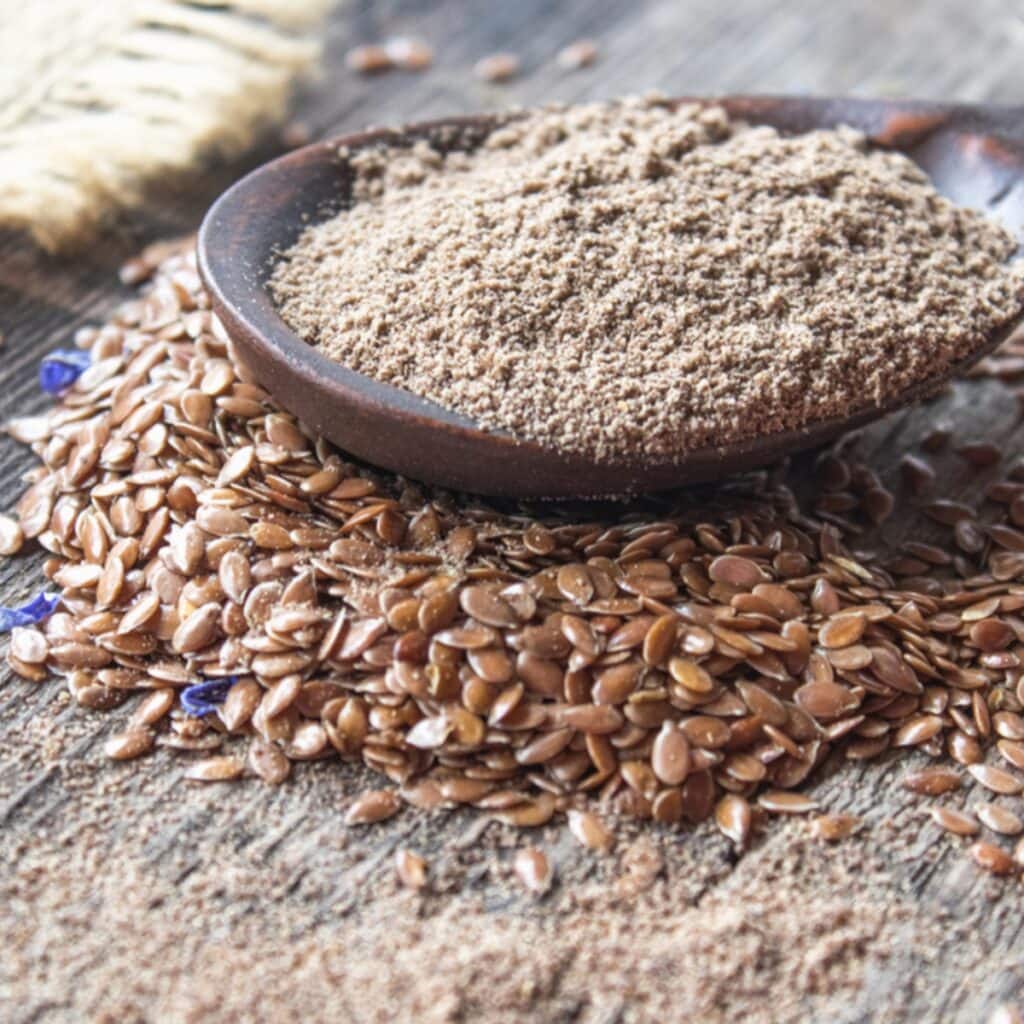
1. Ground Flaxseed
Ground flaxseed is an excellent vegan egg substitute. In fact, it’s my favorite for cookies, brownies, and other bakes that only require binding.
You’ll need to add a pinch of baking powder to keep your recipe from being too dense. But overall, it works well.
That said, this isn’t my choice for cakes where you need a light, airy finish. My choice for that is the next substitute.
Still, ground flaxseed has a long shelf life of 1 to 2 years in most cases. So you can buy it in a big bag and keep it on hand for a while without worry.
How to Substitute: Swap 1 egg with 1 tablespoon of ground flaxseed + 3 tablespoons of water + 1 pinch of baking powder.
Note: You have to use ground flaxseeds. If you don’t, you’ll have a lumpy mess on your hands.
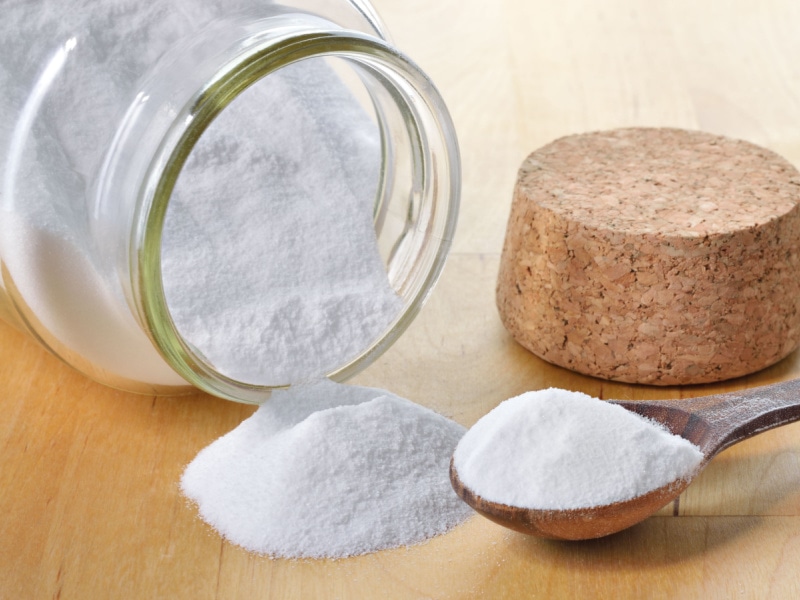
2. Baking Soda and Apple Cider Vinegar
When you need lift, your best bet is to use another leavener. And baking soda + acid is the best choice by far.
Unlike baking powder, which has acid in the mix already, baking soda needs activating in order to work.
So, add the vinegar with the wet ingredients, then add the baking soda with the dry and get that bake into the oven.
When they react, they’ll create plenty of bubbles (lift), making your bake light and airy.
How to Substitute: Swap 1 egg with 1/4 teaspoon of baking soda + 1 tablespoon of apple cider vinegar.
Note: Don’t mix the two separately because they’ll react too quickly. Instead, add them to the wet and dry ingredients, and they’ll react naturally in the oven.
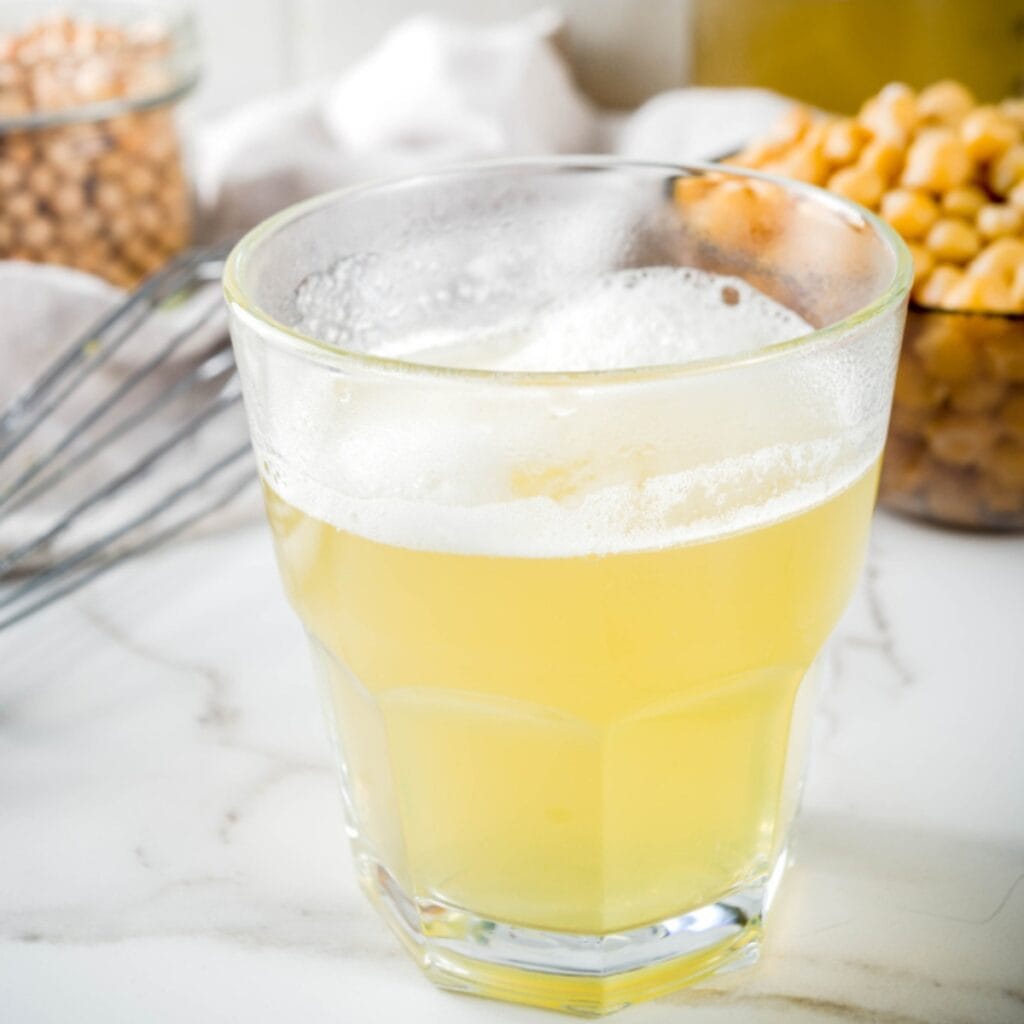
3. Aquafaba
No, aquafaba is not the latest brand of artisan water.
It’s the liquid left over after you’ve cooked a batch of chickpeas. And believe it or not, it has a similar nutritional profile to egg whites.
Better yet, you can whip it up like egg whites, use it as a binder or an emulsifier, and even use it to thicken sauces.
That’s why it’s my choice for savory recipes.
It does a great job holding things together, and you can easily add it to a vegan cheese sauce to make it nice and thick.
I don’t love it in baked goods, though. So be sure to use one of the other swaps if you’re making cakes or cookies.
How to Substitute: Swap 1 egg with 3 tablespoons of aquafaba.
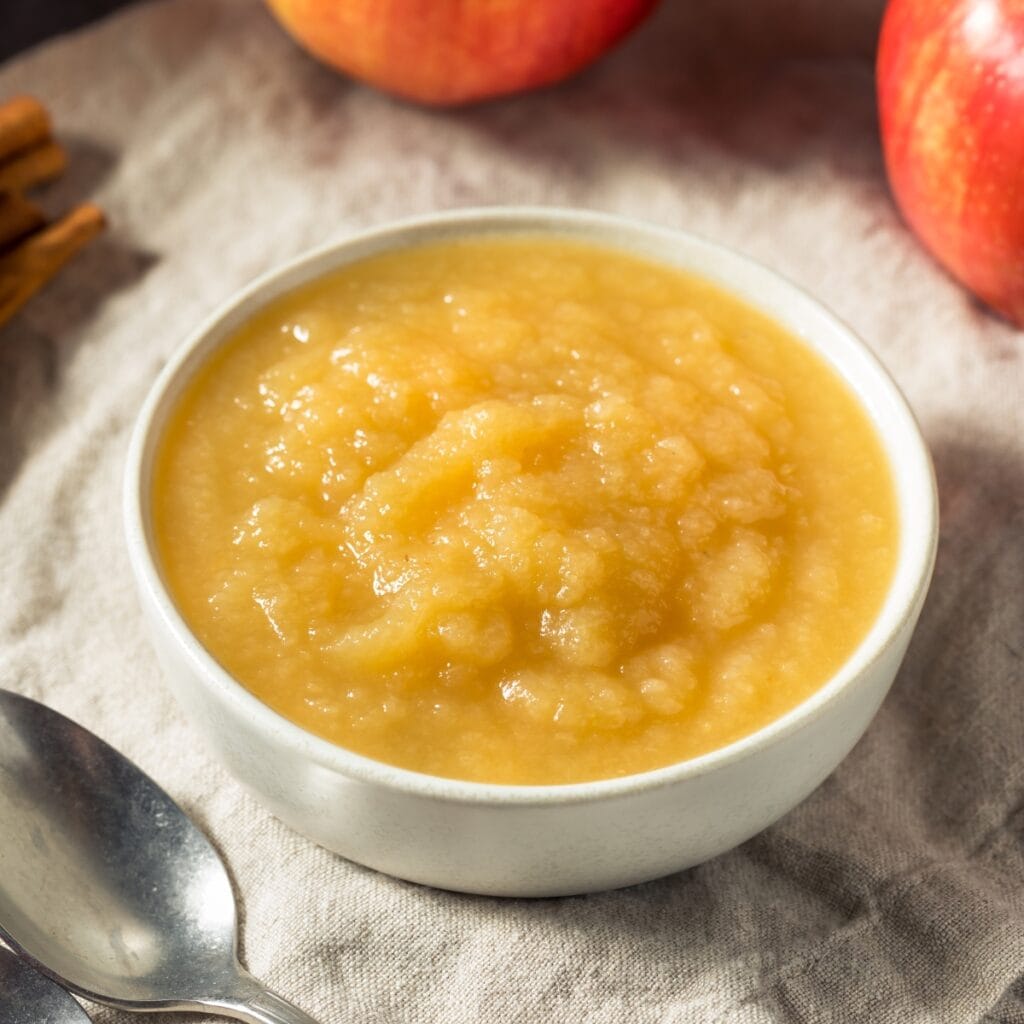
4. Applesauce
The first thing to remember about using applesauce in place of eggs is that it needs to be unsweetened.
Otherwise, your recipes will end up too sweet to eat.
Applesauce adds loads of moisture to recipes, and it acts as a binding agent. How’s that for a double threat?!
It works best in baked goods with lengthy cooking times, as shorter baking recipes won’t have enough time to dry out all the moisture.
That’ll leave your cake or muffins wet and soggy.
Also, it won’t add any lift, so expect denser bakes. You’ll need to add some extra baking powder if you want to lighten things up.
How to Substitute: Swap 1 egg with 1/4 cup of applesauce.
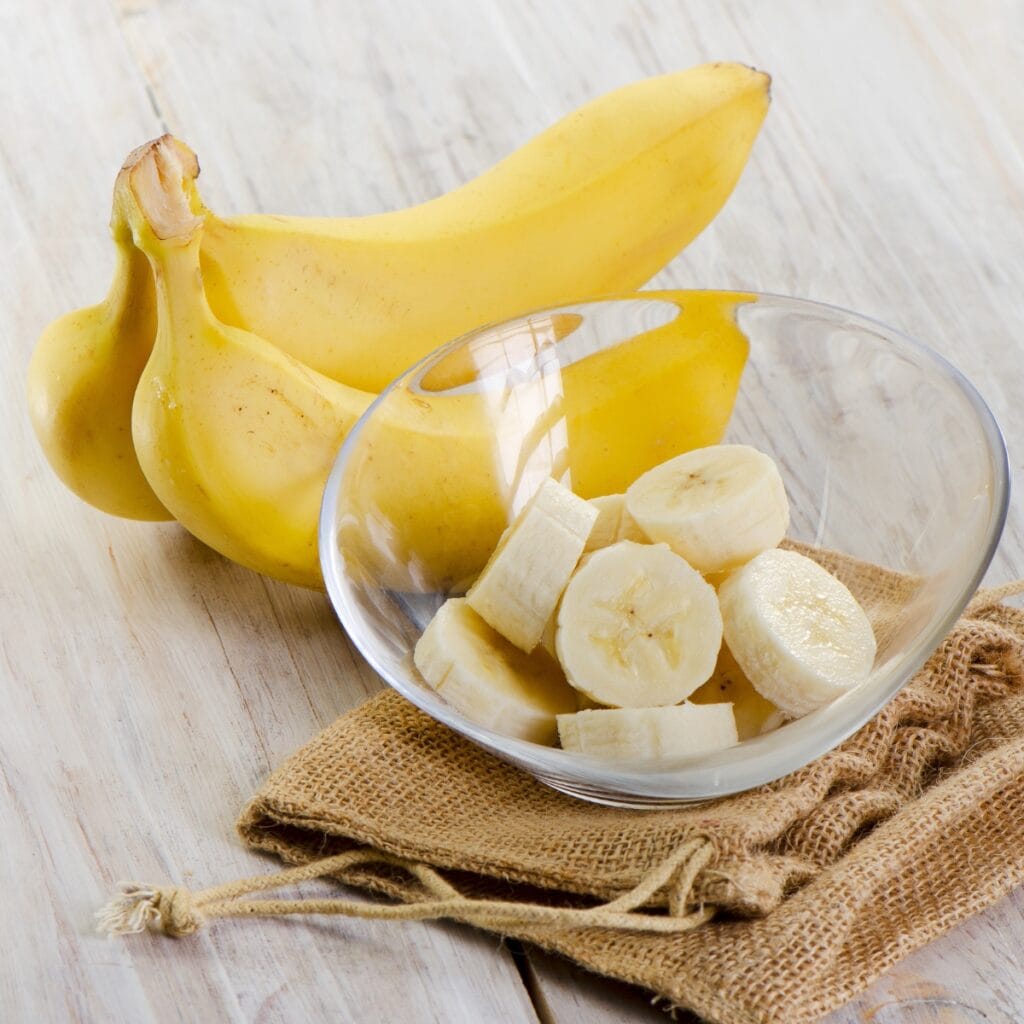
5. Banana
Bananas are another great binding agent. And like applesauce, they have a natural sweetness to them.
So keep that in mind when making baked goods. You won’t need quite as much sugar as the recipe calls for.
Also, remember to mash the bananas to a super-smooth consistency before adding them. Doing so provides a sweet flavor and plenty of moisture.
They work incredibly well in brownies and cookies.
But like applesauce, they don’t offer any lift. So avoid using it in cakes, muffins, bread, and cupcakes, or add a bit of baking powder.
How to Substitute: Swap 1 egg with 1/4 cup of mashed bananas.
Note: The banana flavor will be quite prominent. So only use this substitute in recipes where that will be a complement.
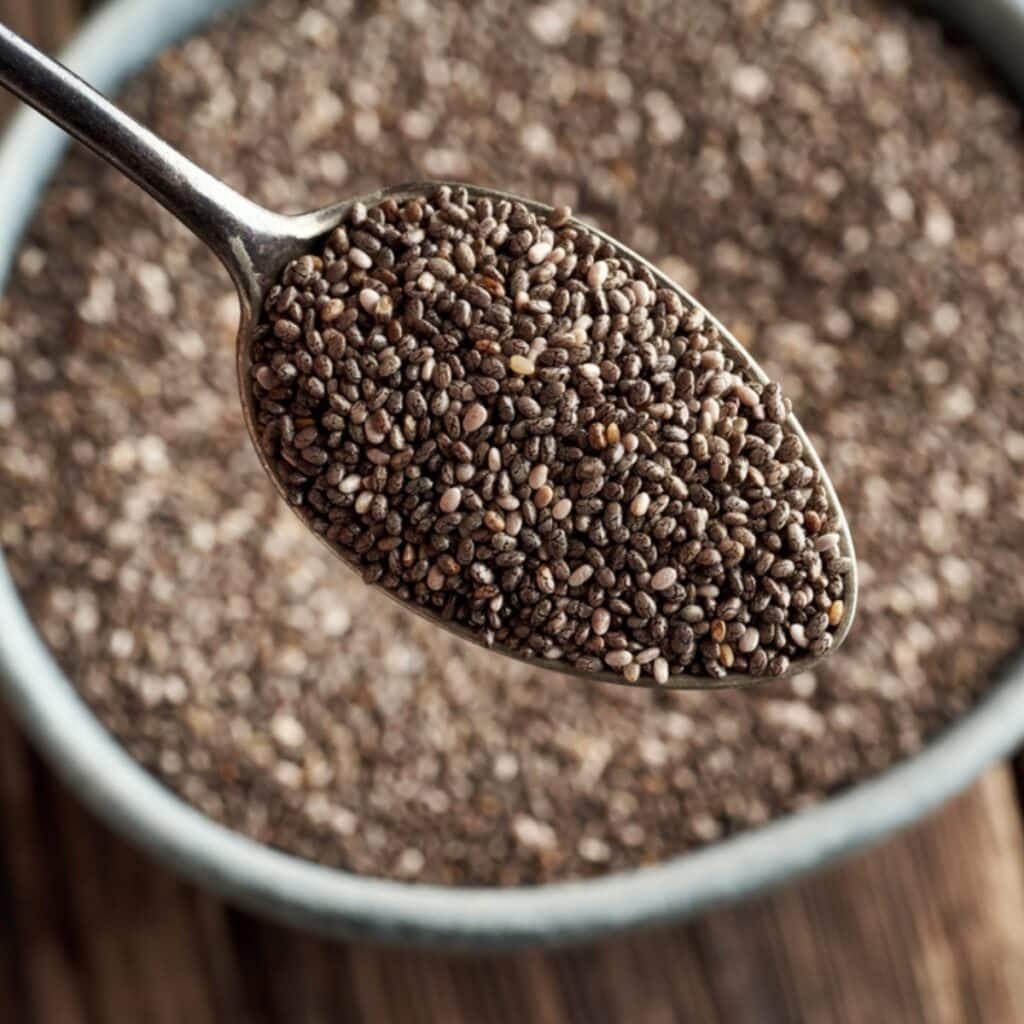
6. Chia Seeds
Chia seeds are a lot like ground flaxseed. And you can use them in the same recipes and in the same way.
Just be sure to start with ground chia seeds. And remember they have to sit for at least 10 minutes in order to thicken.
Chia seeds are a terrific binder, and they’ll even help to thicken certain recipes.
But they’re not the best for creamy recipes. For those, use the next option!
How to Substitute: Swap 1 egg with 1 tablespoon of ground chia seeds + 3 tablespoons of water.
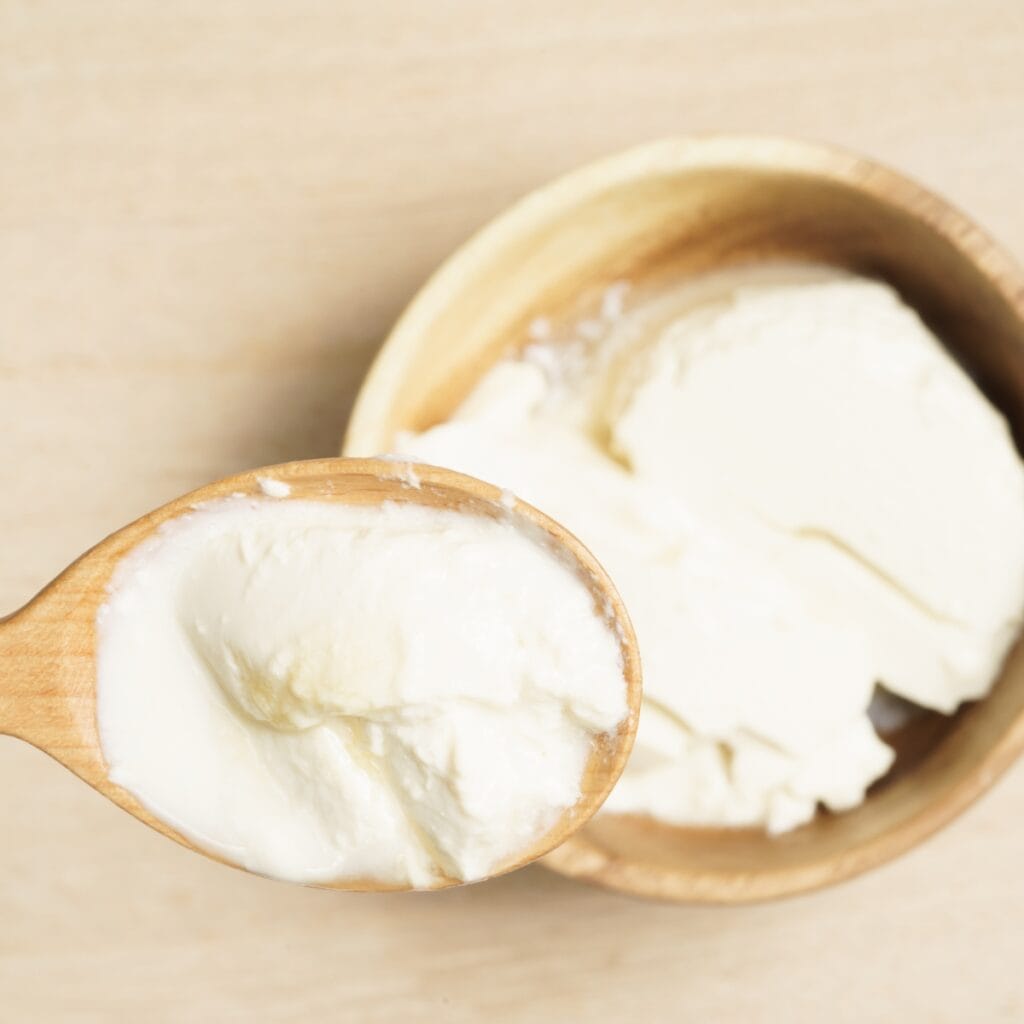
7. Silken Tofu
Silken tofu works surprisingly well as an egg replacement.
It’s a tricky substitute to use, so beginner bakers might want to avoid it. But if you give it a shot, you can use it in everything from cheesecakes to mousse.
Like mashed bananas, this stuff doesn’t make a good leavening agent. So don’t expect any lift.
But for creamy recipes, like vegan cheesecakes, it can’t be beat!
Plus, it’ll bring a ton of moisture and richness to baked goods.
How to Substitute: Swap 1 egg with 1/4 cup of silken tofu.
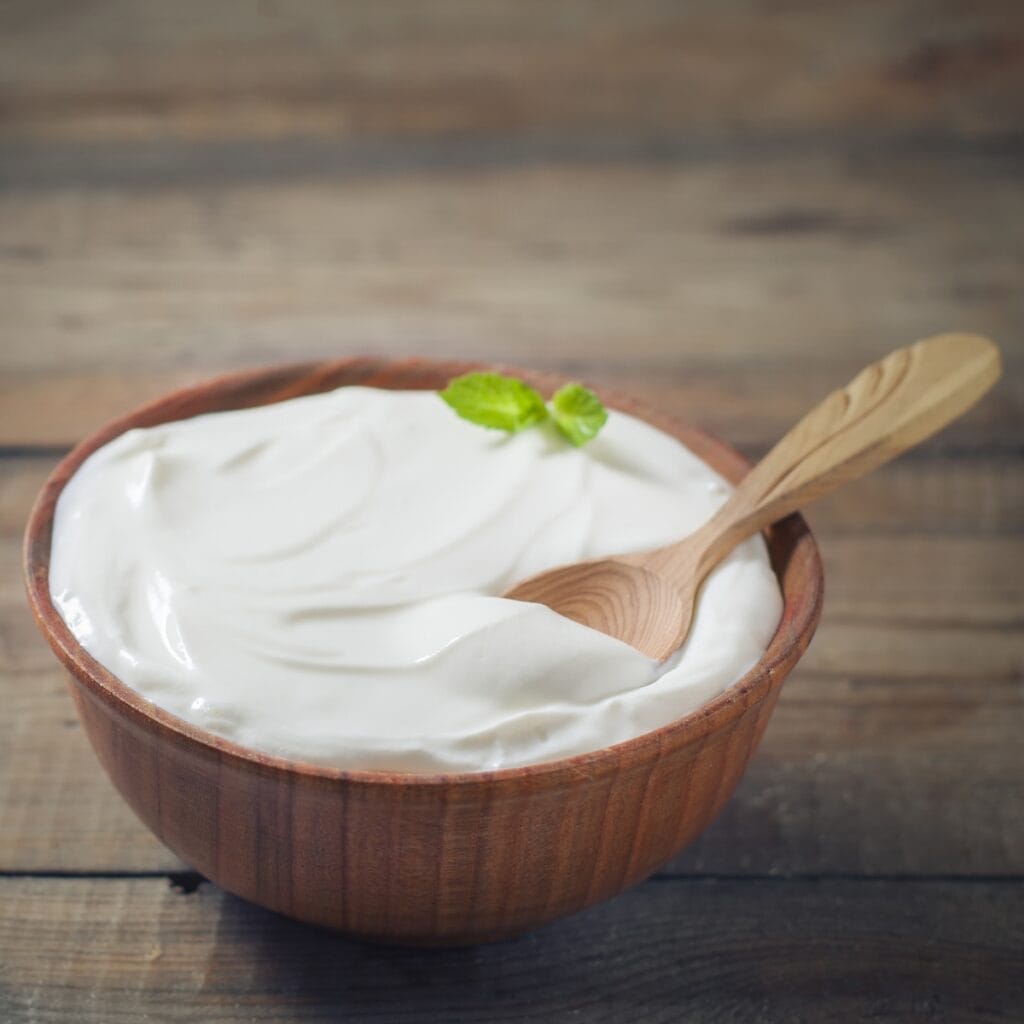
8. Vegan Yogurt
Not a fan of tofu? Try yogurt instead!
Regular (dairy) yogurt is often used as an egg substitute in baking. That’s because it’s tangy, rich, and wonderfully creamy.
Vegan yogurt is no exception, and it’ll make pancakes, quick bread, and other small/dense bakes deliciously tender.
Generally speaking, it works well in recipes with six ingredients or fewer. Any more than that, and you might find the results disappointing.
Also, don’t use it in recipes where eggs are needed as binding agents. It’s useless in that respect.
How to Substitute: Swap 1 egg with 1/4 cup of vegan yogurt.
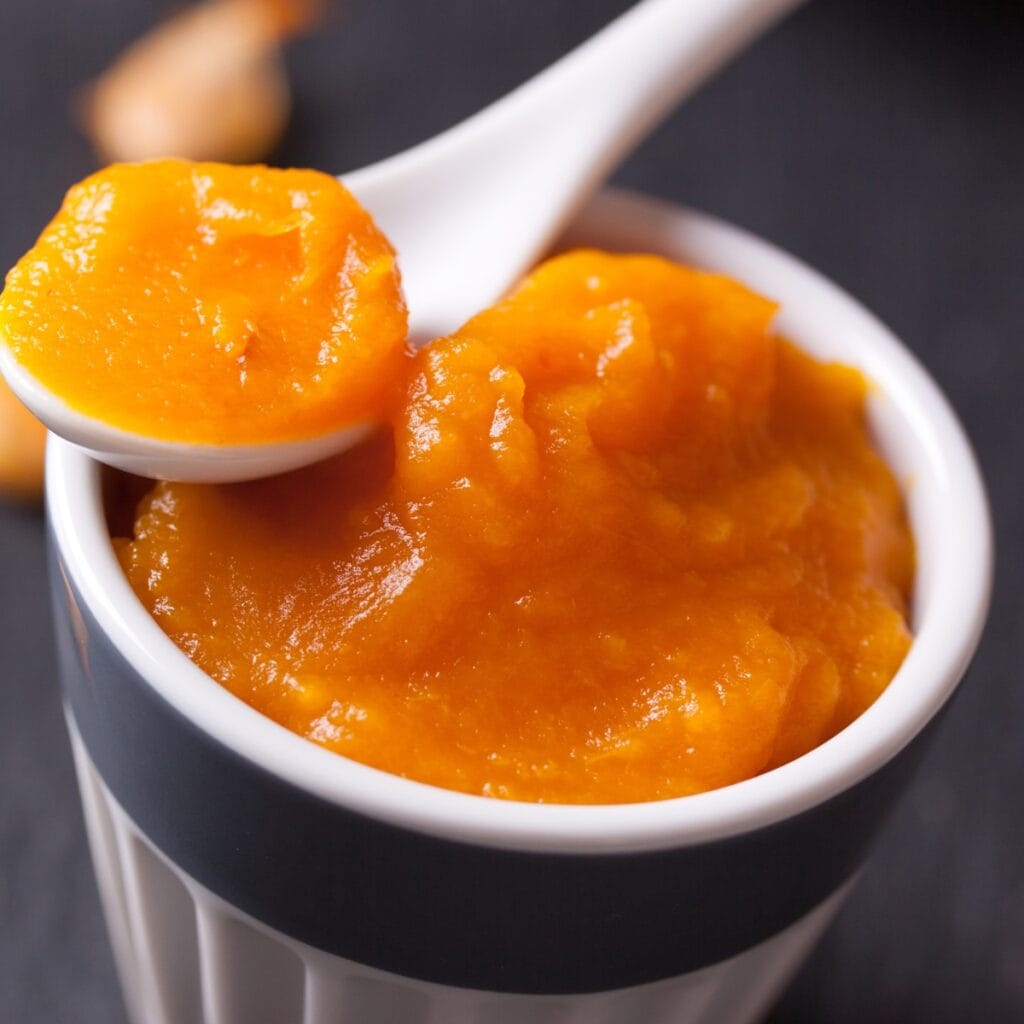
9. Pumpkin Puree
Pumpkin puree is a good egg substitute if you don’t mind a bit of pumpkin flavor.
I think it’s best in recipes with lots of bold spices that will mask the pumpkin flavor. Or, you know, anything spiced for fall (hello, quick bread recipes!)
It’s smooth, thick, and slightly sticky. All these things make it an excellent choice for binding ingredients together.
It also adds richness and a nice texture.
How to Substitute: Swap 1 egg with 1/4 cup of pumpkin puree.
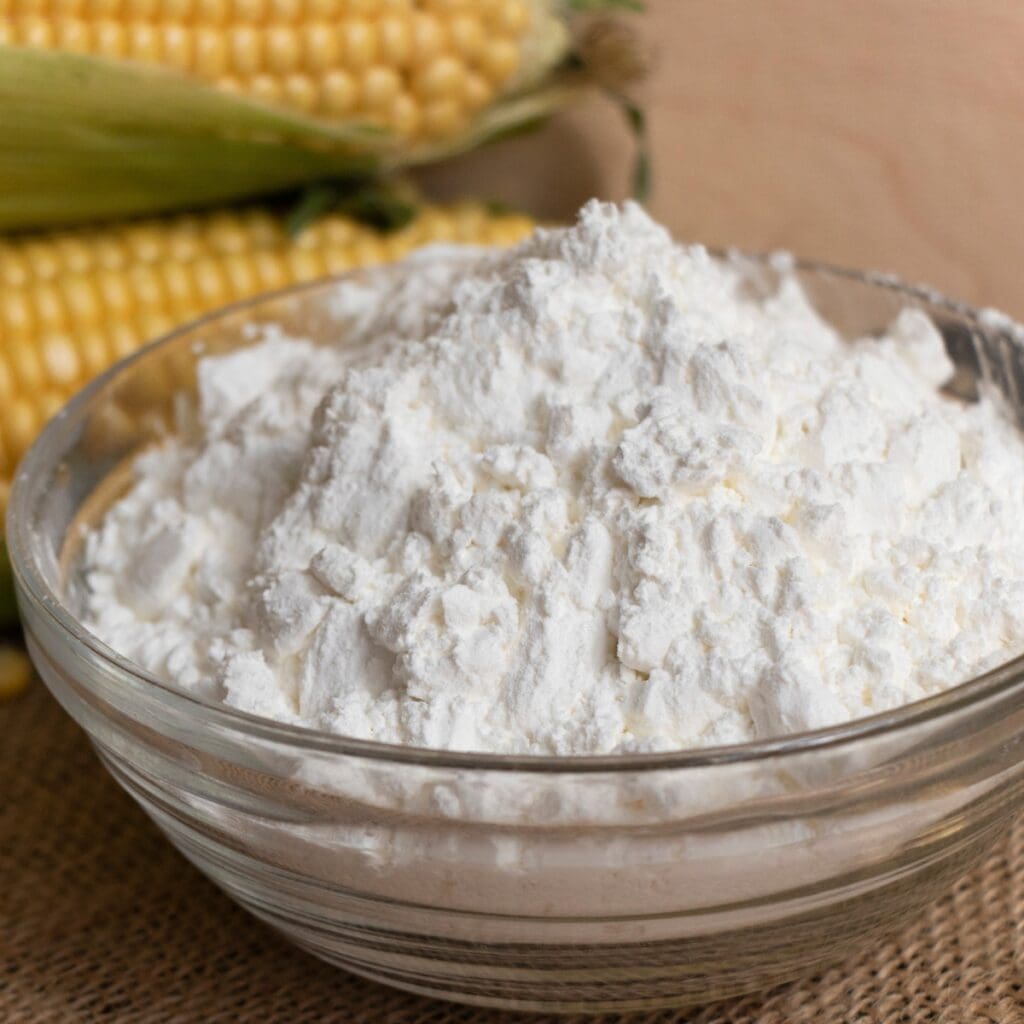
10. Cornstarch
Cornstarch isn’t my favorite egg replacement. Still, it works in a pinch, and most people have some sitting around.
You won’t be surprised to hear that it won’t make your baked tender. And it won’t add richness or lift.
Instead, it works best in creamy pies, puddings, and custards because it’s a fantastic thickener.
With that in mind, use this in small recipes, like sauces or pudding. It’s not a great idea if the recipe needs more than two eggs.
How to Substitute: Swap 1 egg with 2 tablespoons of cornstarch + 3 tablespoons of water.
